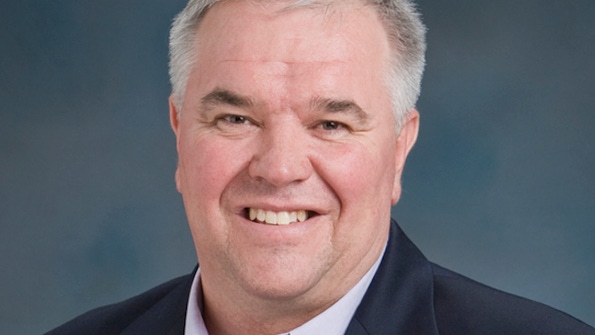HTG offers a proven framework for helping IT service providers to grow by exchanging knowledge and motivating each other to continually improve business performance.

Arlin Sorensen recalls being among the countless IT company owners who geared up their businesses to take advantage of a once-in-a-lifetime, turn-of-the-century windfall.
“Back in 1999, I drank the Kool Aid that Y2K would be the biggest thing ever,” the former VAR owner said. “It didn’t come to Iowa.”
“I staffed up and by April of 2000, I was trying to figure out what I needed to do to keep my company afloat.”
Sorensen reached out to some of his colleagues in the business.
“We were trying to figure out whether we just didn’t know how to get the Y2K business,” he explained. “We learned that nobody had any Y2K business.”
That process of comparing notes with his peers quickly led him to the grim reality that the Y2K windfall would never come.
“I had to make some staffing adjustments,” Sorensen said. “It was the first time in my career that I had ever had to let anybody go.”
The VAR later recovered, evolved into a managed service provider (MSP), and ultimately grew to more than 100 employees, working in nine locations across five states. Sorensen cashed out in 2012 after 27 years.
“I wouldn’t have made those adjustments without the peer group,” he said of the downsizing that saved his business.
That same year – 2000 – Sorensen founded HTG, an international community of peer groups, comprised of MSPs and VARs.
HTG experts facilitate groups of 10 to 12 noncompetitive partners, who gather regularly in person and through video conferencing.
“Today, why people come to us is a little bit different than it has historically been,” Sorensen said. “People came to us 10 years ago to become part of a community and to network with others.”
“Today, a lot of what they are asking us for is answers,” he continued. “’Tell us what we should go do to shortcut the learning to become successful; give us the playbook to how to succeed as a managed service provider so we can do it quicker.’”
Family, accountability, benchmarking
While there is no actual playbook of shortcuts, what HTG does offer is a proven framework for helping IT companies to grow through the peer group experience.
The HTG peer groups approach provides partners with several key benefits.
First is camaraderie.
“They become part of a family of folks that really care about one another,” Sorensen said.
“One of the challenges of running a small business is you’re basically on an island by yourself,” he continued. “You can’t talk about challenges with your employees. You’re not going to go down the street and talk to your competitor.”
“Peer groups provide you with a safe place for you to discuss the challenges that you’re facing,” he said.
Another key draw is accountability.
“Every quarter they set goals,” Sorensen explained. “They make commitments to their groups and they get back in 90 days and they defend those results.”
The exercise helps drive partners to continually improve the performance of their businesses.
“It’s like peer pressure in kindergarten on the playground,” he said. “You don’t want to disappoint your friends.”
Finally, partners get a close-up, behind-the-scenes view of what well-run MSPs look like.
“We benchmark all their financials every quarter,” Sorensen said. “Almost always, when they come to the peer group for the first time, they think they have their business going well until they see what everyone else is doing.”
Joining a peer group
Prospective partners start by filling out an online profile.
“Then we get on the phone and we place them with a group,” Sorensen said. “We guide the placement of a partner that comes to us based on their size and their experience,” Sorensen said.
They also ensure that members of a group don’t share competitive markets.
The top tier of peer groups is called Empower, and involves two days of face-to-face meetings each quarter.
That program, which costs $5,000 annually, is open to companies with at least 8 full-time employees and minimum yearly revenue of $750,000.
“The other thing is that they’re willing to travel,” Sorensen said. “There are some folks who just don’t want to travel that often.
HTG’s Q2 North America peer meetings are scheduled for May 1-5 in Dallas, Texas, where 24 groups are expected.
Similar gatherings will be held in Europe, and Australia for the Asia Pacific peer groups.
Partners who want a higher touch can add on consulting.
A variation of the Empower program, known as Engage, combines the peer group component with an online MSP training program.
“We deliver content that we know is important for these owners to hear and to learn,” Sorensen said. “That’s kind of our response to the demands of the new members these days.”
Engage partners can choose to participate in quarterly face-to-face meetings for $5,000 a year, or gather biannually for $3,5000.
For $100 a month, partners can join at the Emerge level, meeting for 90 minutes a month via videoconference.
“It’s (mostly) smaller companies…that don’t qualify for our face to face groups,” Sorensen said. “In many cases, the smaller the shop, the lonelier it is.”
Most recently, HTG has launched role-based Empower groups, for sales and service professionals.
“These are not owners,” he said. “They are key leaders, either in the service or the sales operation.
“They’re in rooms with other people who are doing the same jobs they’re doing.”
Interest in the newest peer programs has been brisk, with 12 groups quickly forming.
HTG sees this as a continuing growth area.
“It’s exploded,” Sorensen said. “We’re going to continue these role-based groups. We have a roadmap to broaden how we help these second-tier managers.”
This article is part of a series entitled “MSP Whisperers,” which looks at the distinct approaches of top consultants in the MSP space.
Send tips and news to [email protected].
About the Author(s)
You May Also Like


